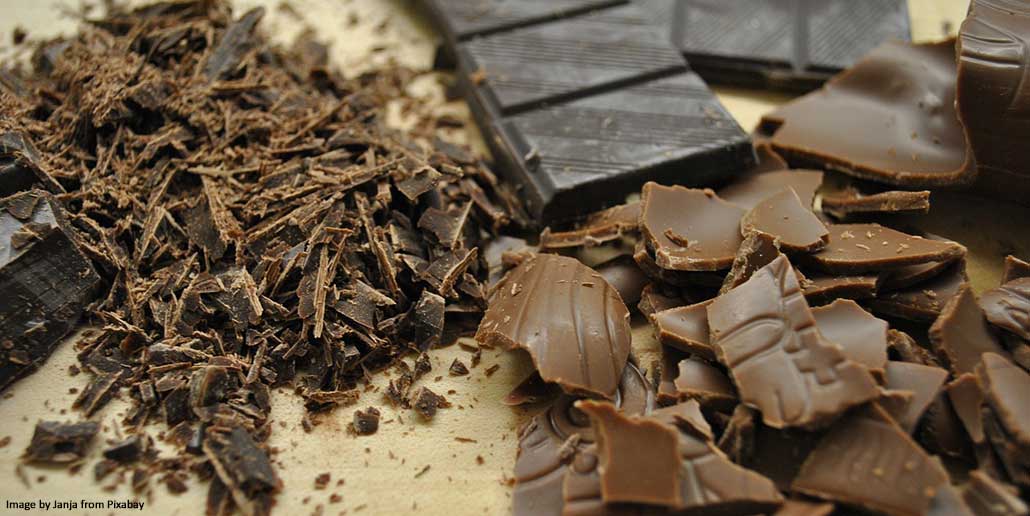
Dark Chocolate vs. Milk Chocolate: A Sweet Debate
Posted at h
in Chocolate 101
Chocolate lovers often find themselves in a friendly rivalry over which is better: milk or dark chocolate. While both offer a delicious experience, they differ significantly in taste, composition, and health benefits. This guide breaks down the differences to help you decide which suits your palate and lifestyle better.
1. The Ingredients
- Dark Chocolate
Made with cocoa solids, cocoa butter, and sugar. It contains little to no milk solids, resulting in a higher concentration of cocoa. The percentage of cocoa typically ranges from 50% to 90%, with higher percentages offering a more intense, bitter flavour. - Milk Chocolate
Contains cocoa solids, cocoa butter, sugar, and milk solids. Its cocoa content usually ranges from 10% to 50%, with the milk contributing to its creamy texture and sweeter taste.
2. Taste and Texture
- Dark Chocolate
Known for its rich, intense flavour, dark chocolate has a bittersweet profile that appeals to those who prefer less sugary treats. Its texture is firm and snappy, making it perfect for pairing with wine or using in baking. - Milk Chocolate
Milk chocolate is sweeter, creamier, and milder, making it a crowd-pleaser. Its smooth texture and lighter flavour are especially popular among children and those with a sweet tooth.
3. Nutritional Profile
- Dark Chocolate
It’s often praised for its health benefits due to its higher cocoa content. It is rich in antioxidants like flavonoids, which can help improve heart health and reduce inflammation. It also contains less sugar than milk chocolate, making it a better choice for those monitoring their sugar intake. However, dark chocolate is more calorie-dense, so portion control is key. - Milk Chocolate
It contains more sugar and fat, making it less healthy than its darker counterpart. However, it does provide a quick energy boost and contains calcium from the added milk solids.
4. Health Benefits
- Dark Chocolate
- Heart Health: The flavonoids in dark chocolate can improve blood flow, lower blood pressure, and reduce the risk of heart disease.
- Brain Health: Dark chocolate’s antioxidants and minerals, like magnesium, support cognitive function and mood enhancement.
- Lower Sugar Content: With less sugar, dark chocolate has a smaller impact on blood sugar levels, making it a better option for those with diabetes.
- Milk Chocolate
- Energy Boost: Its higher sugar content provides a quick source of energy, making it a favorite for an afternoon pick-me-up.
- Mood Enhancement: The sugar and creamy texture can trigger feelings of happiness and comfort.
5. Uses in Cooking
- Dark Chocolate
Dark chocolate is often used in gourmet desserts, truffles, and sauces. Its bold flavor pairs well with fruits like raspberries and oranges, as well as nuts and spices. - Milk Chocolate
Milk chocolate is a staple in confections, such as candy bars, cookies, and hot chocolate. Its sweetness makes it ideal for frostings and fillings.
6. Popularity and Appeal
- Dark Chocolate
Dark chocolate is often associated with sophistication and a more mature palate. It’s the go-to for chocolate purists and those who enjoy a slightly bitter edge. - Milk Chocolate
Milk chocolate dominates the market due to its universal appeal. It’s a comforting treat that’s widely enjoyed by people of all ages.
Which Should You Choose?
- Choose Dark Chocolate If:
- You prefer a less sweet, more intense flavour.
- You’re looking for a chocolate with potential health benefits.
- You enjoy pairing chocolate with wine or coffee.
- Choose Milk Chocolate If:
- You love sweet, creamy flavours.
- You’re looking for a classic, comforting treat.
- You prefer a more versatile chocolate for casual snacking or baking.
Both types of chocolates offer unique experiences, catering to different tastes and preferences. While dark chocolate is often celebrated for its health benefits and bold flavour, milk chocolate remains a timeless favourite for its sweetness and creamy texture. Whichever you choose, both can be savoured as part of a balanced and joyful diet.

